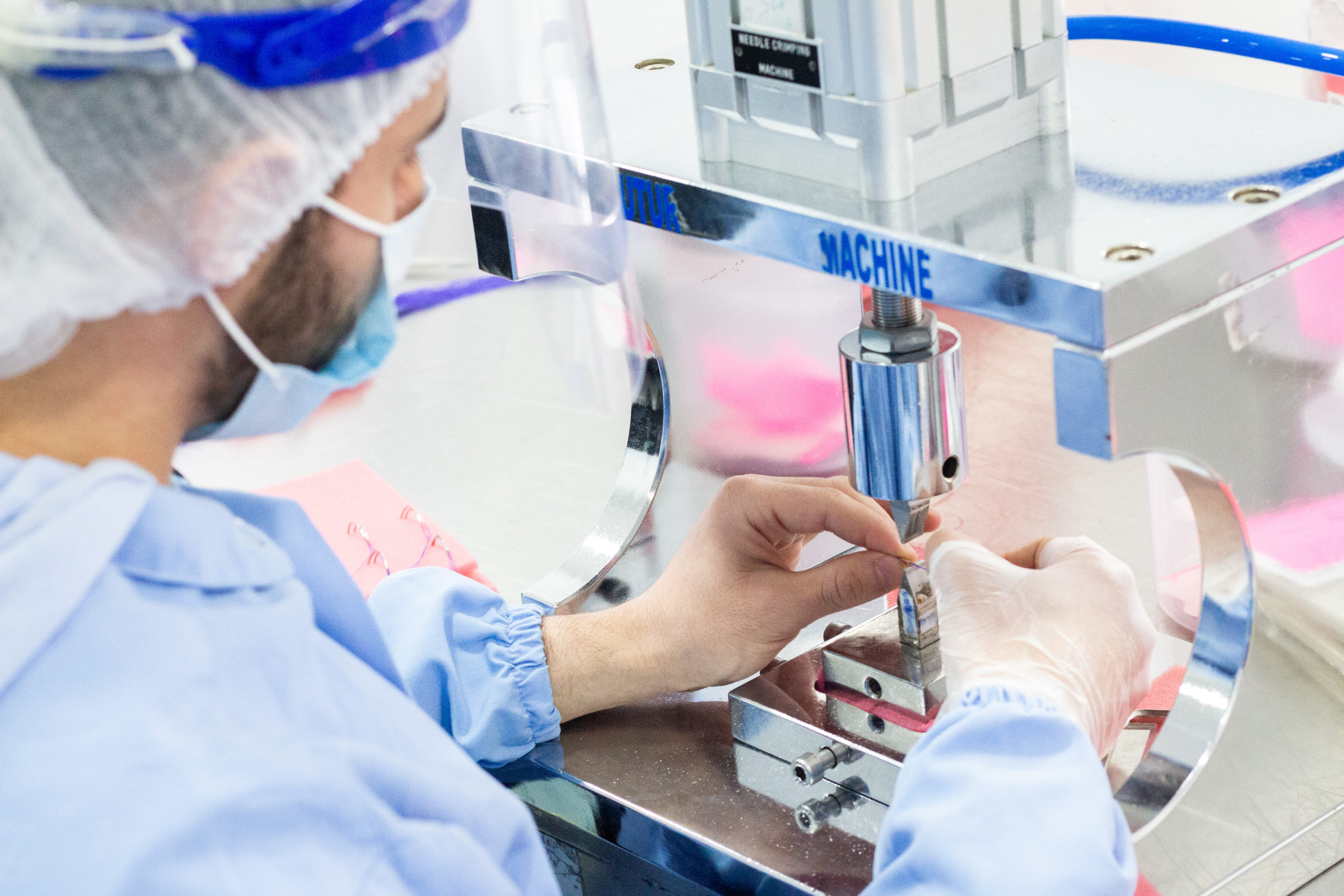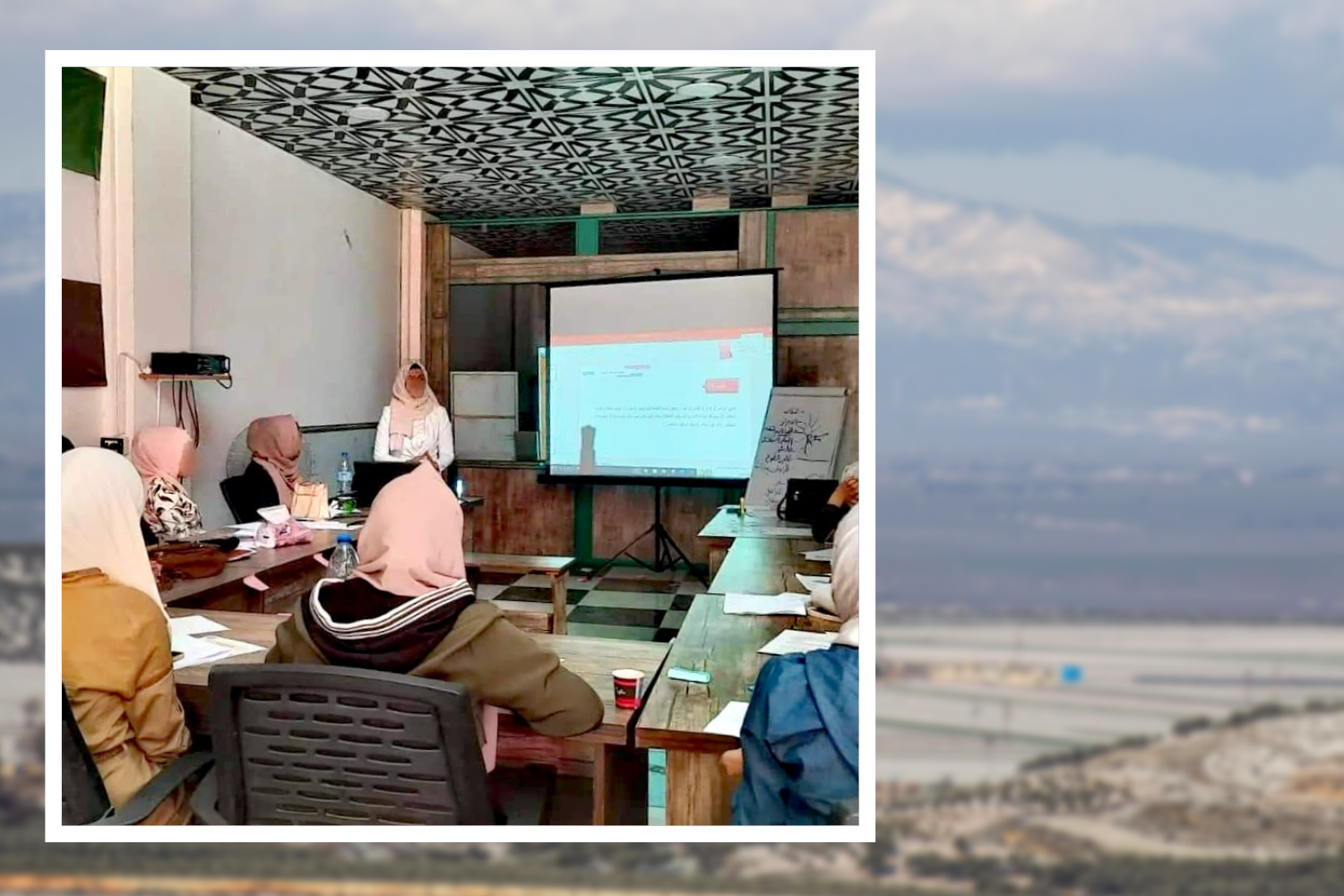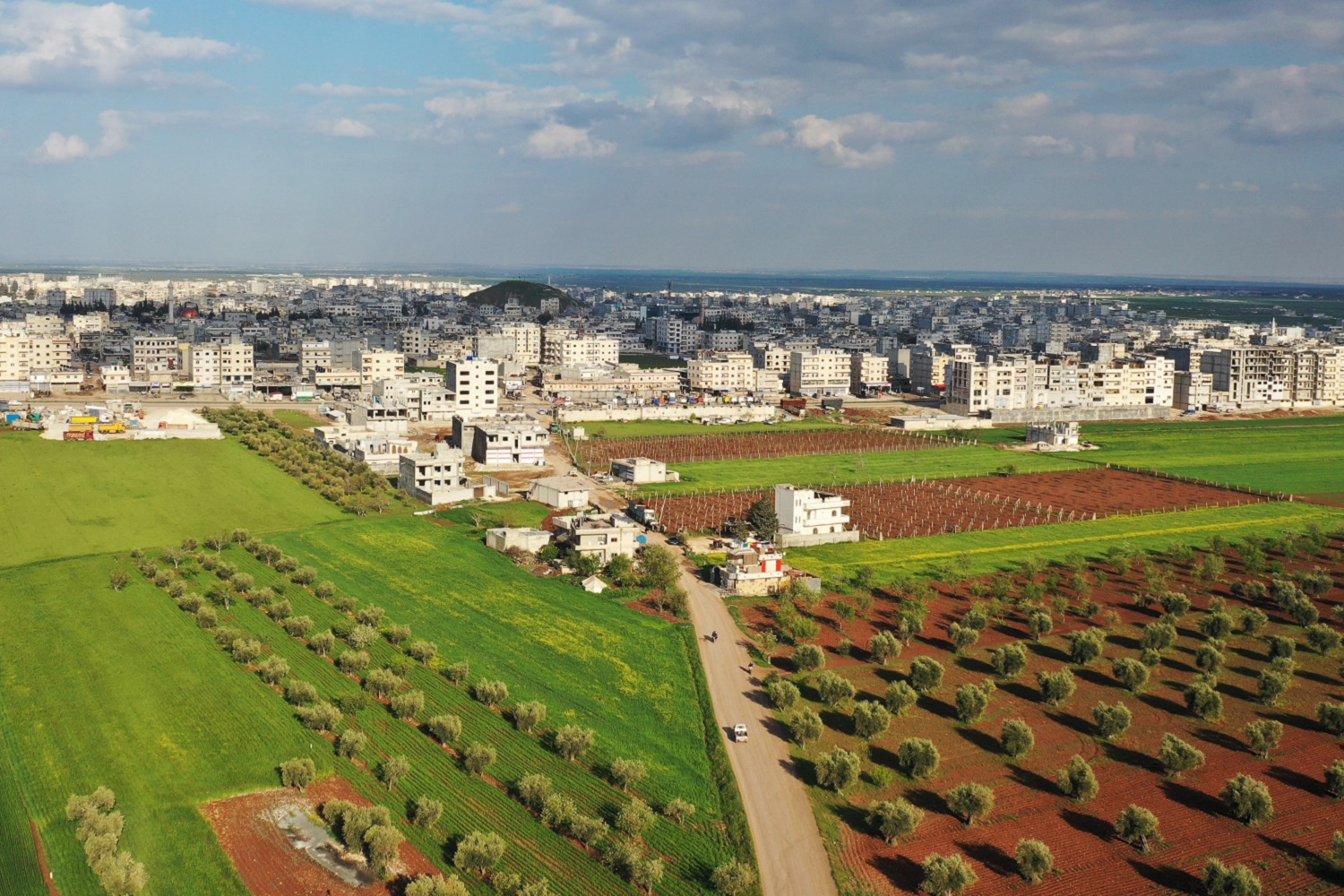“Local Voices at a Crossroads” is an article series in which local actors of everyday peace share their insights into the fragilities and resilience of their societies in the face of conflict. Grassroots societies lie at the crossroads between local realities and national peacebuilding policies and practices. The series therefore aims to accelerate action at the local level by strengthening the voices of civil society at the policy level. “Local Voices at a Crossroads” is hosted by the Civil Society Platform for Peacebuilding and Statebuilding (CSPPS) and emerged from a collaboration with the Political Settlements Research Programme (PSRP*), based at the University of Edinburgh. This post was originally published on CSPPS.
In Syria, like in other conflict-affected countries, the COVID-19 pandemic added another layer of vulnerability and uncertainty. Several reports pointed to COVID-19 as a threat multiplier, exacerbating existing fragilities and grievances and posing long-lasting challenges to durable peace. Yet, it is not easy to single out the impact of the pandemic on pre-existing vulnerabilities. This is all the more so the case in Syria, which entered its tenth year of conflict in March 2021. Recognizing the importance to shed light on the COVID-19-peace-conflict nexus, we asked 50 residents in opposition-held areas in northwest Syria how the outbreak of the pandemic affected their perceptions of key governmental actors, and how these perceptions reversely affected their response to the virus.
Mistrust in Governmental Actors
In our previous story “The Politics of the COVID-19 Pandemic in Syria”, we looked back at the competition between Syrian governmental actors over the COVID-19 file. The latter was commonly seen by the Syrian government and the two de facto governments in the opposition-held areas – the Interim government in Idlib and the Salvation government in Aleppo – as an opportunity to attract external funds and gain international legitimacy. Despite their apparent interest in managing the pandemic, the lack of engagement of these governmental actors to effectively mitigate the impact of COVID-19 and to reach vulnerable communities further damaged their image inside Syria.
Strained state-society relations and mistrust pre-existed the COVID-19 pandemic. Indeed, governmental actors across Syria are also key conflict actors, and their reputation was recurrently and generally damaged by their lack of governmental capabilities, latent corruption, and involvement in violent policies. It comes as no surprise that 65% of respondents we interviewed put little to no trust in the Interim government, while the number peaks to 80% in the case of the Salvation government (see table below: To what extent do the trust the response of the following actors to the COVID-19 pandemic in northwest Syria?*)

Perceptions are more nuanced when it comes to the Turkish government, which is strongly involved militarily and politically in western and northern Aleppo governorate. More than 40% of the respondents we interviewed in these areas put some trust in the Turkish neighbor, which attracted a lot of trust in only 5 cases. Despite its violent military offensives against elements of Islamic State (IS) and the Kurdish PKK in northern Syria from 2016 to 2019, Turkey played an essential role during the pandemic. Through its health directorates and its cooperation with Syrian local councils in areas under the control of the Interim government, Turkey largely controlled the COVID-19 response and imposed strict mitigation measures. Even before the pandemic, Turkey equipped most hospital and medical centers affiliated with the Turkish Health Ministry, and it provided medical services in more isolated, rural areas. While this positive role must be nuanced by the marginalization of (I)NGOs under heavy Turkish supervision and slow bureaucracy, it surely accounts for the relative trust placed in Turkey compared to other governmental actors in Syrian opposition-held areas. Finally, during the pandemic, Turkey remained the only point of entry for UN agencies and essential medical supplies to Syrian opposition-held areas through the Bab al-Hawa border crossing in the northwest of the country, after the UN failed to renew its mandate on other crossings in July 2020 due to a Russian veto.
Conspiracy Theories and Misinformation
Political competition over the COVID-19 file by the high number of governmental actors in Syria resulted in the multiplication and inconsistency of discourses on the pandemic. Moreover, the lack of independent media and pressure on alternative voices in northwest Syria reinforces mistrust in official information on the pandemic. As a result, Syrian residents in opposition-held areas rely mostly on social media – considered the only independent media source – and their close circles to keep informed and updated about COVID-19. Over-reliance on these non-expert sources of information has only accelerated the spread of rumors and inaccurate news.
In Idlib governorate, which is home to more than four million people, the Salvation government is affiliated to the Salafi-jihadi group Hayat Tahrir al-Sham. The response to COVID-19 thus featured a religious element. The government engaged religious clerics and preachers to educate their congregants on the virus and to echo the official discourse. The Salvation government also created a weekly YouTube show called “Corona and Sharia” and distributed Zakat (compulsory contribution to charity) to the most vulnerable residents. Yet again, the shadow of Hayat Tahrir al-Sham and the mistrust in the Salvation government, in addition to the latter’s lack of capacity and effective control over all Idlib governorate, prevented solidarity with official mitigation measures. This gave a platform to other, independent religious voices in Idlib and Aleppo governorates. General confusion on the COVID-19 pandemic therefore grew, especially when some of these other religious clerics suggested that the virus was a lie and a conspiracy against Islam used to forbid prayers and pilgrimage. Similar theories spread across the world through social media when clerics stressed that Muslims were immune to the virus and that the vaccine would turn Muslims into unbelievers.
All in all, mistrust, misinformation and the multiplication of sometimes contradictory discourses on the COVID-19 pandemic had an adverse impact on the way grassroots communities responded to the virus. The great majority of the population in opposition-held areas adopted reckless behaviour, negligence and refusal to take mitigating measures seriously. As explained by one of the residents we interviewed: “A decade of war did not kill us; we are stronger than the people outside Syria so why should we be afraid of the virus?”.
Awareness Campaigns and Bridge Building
Mistrust in governmental actors and information about COVID-19 are the greatest challenges to protect Syrian communities in opposition-held areas, in addition to difficult access and reduced peacebuilding efforts. Deprived of independent state structure and support, 90% of the participants we interviewed trusted and relied on local civil society and their close circles to provide protection and to mitigate the impact of COVID-19. While the pandemic brought local civil society to the forefront of conflict management in northwest Syria, it also affected the nature of its missions. In addition to distributing aid, local civil society became a key transmission channel to fight misinformation and raise public awareness about the virus and mitigating measures via door-to-door and mobile campaigns. These campaigns are also the occasion to break isolation and provide educational and psychological support to residents. Medical services are free for all in opposition-held areas, but people must be willing to visit hospitals and medical centers. More specifically, they must trust the institutions and the people delivering these medical services.
This blog was originally published by the Political Settlements Research Programme here


